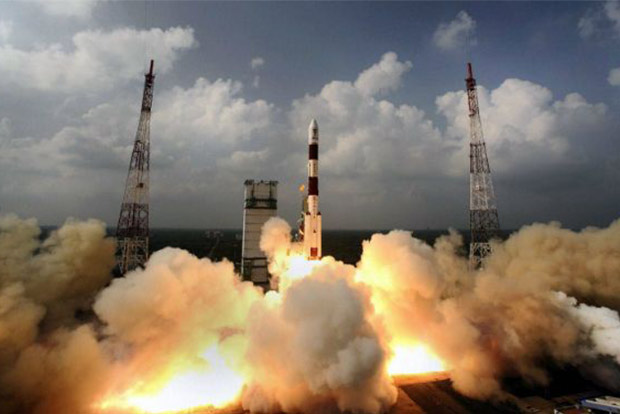All set for launch of India’s satellite navigation system
India is all set to have its own satellite navigation system, with the space agency gearing up for the launch of the seventh and final navigation satellite IRNSS-1G by the workhorse launch vehicle PSLV-C33 on April 28 from the SHAR Range at Sriharikota.

Chennai
Indian Space Research Organsiation (ISRO) sources told UNI on Thursday that the launch would take place at 12-50 am from the First Launch Pad.The four-stage vehicle has been integrated at the Vehicle Assembly Building at the Satish Dhawan Space Centre and the work on integrating the satellite with the launch vehicle was expected to be completed on Friday.
The date for the Launch Authorisation Board meeting, which would clear the launch, would also be decided in the next couple of days, the sources added. With this launch, India would be joining the elite group of nations to have its own regional satellite navigation system, on par with the GPS system of the United States (US). The launch of the last and seventh satellite IRNSS-1G, would mark the completion of the entire Phase-1 IRNSS constellation.
Till date, India has launched six regional navigational satellites (IRNSS-1A, 1B, 1C, ID, 1E and 1F) as part of a constellation of seven satellites to provide accurate position information service to users across the country and the region, extending up to an area of 1,500 km.
As in the previous six launches of IRNSS satellites, the ‘XL’ version of PSLV would be used in this mission also. This would be for the 13th time ‘XL’ configuration would be flown.
The IRNSS was similar to the Global Positioning System (GPS) of the US (24 satellites), Glonass of Russia, and Galileo of Europe as well as China’s Beidou.
Visit news.dtnext.in to explore our interactive epaper!
Download the DT Next app for more exciting features!
Click here for iOS
Click here for Android



